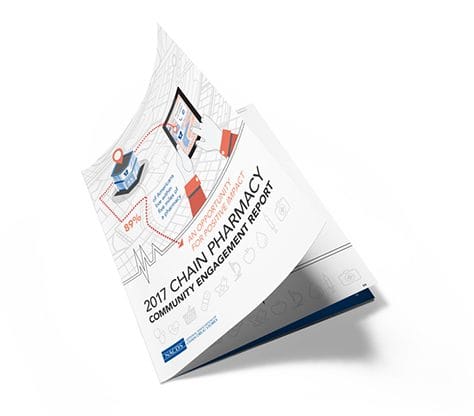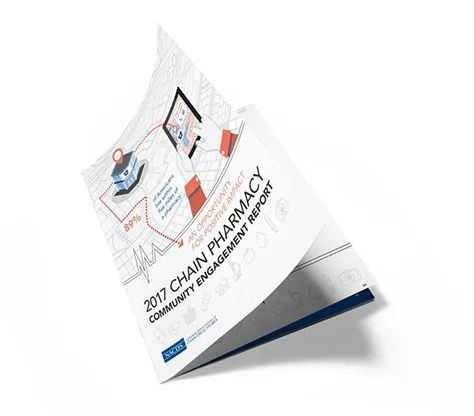
ARLINGTON, Va. – The National Association of Chain Drug Stores, with the assistance of Deloitte & Touche LLP, has developed a report on the community engagement activities of NACDS chain member companies. The report is intended to empower further discussions about opportunities for chains and suppliers to collaborate to help address society’s needs.
The 2017 Chain Pharmacy Community Engagement Report quantifies $630 million in giving last year, plus 1.5 million volunteer hours, on the part of NACDS chain member companies. The report also describes activities in the top-three ranked focus areas: access to affordable medicines and vaccines; preventing diabetes and promoting healthy meals; and preventing opioid abuse.
“Pharmacies serve as the face of neighborhood healthcare every day, and this initiative’s purpose is to describe and build on the ways that pharmacies help to meet the needs of their communities beyond the services that ordinarily come to mind,” said NACDS president and chief executive officer Steven Anderson. “NACDS members live up to the opportunities for positive impact that come with operating a pharmacy within five miles of 89% of Americans, and that come with employing nearly three million people.
“In releasing this report, we want to acknowledge the tremendous work underway by NACDS associate members as well – our supplier partners. Many of the highly effective programs to meet society’s needs are accomplished in collaboration with chains and suppliers, and we hope that this report will help existing and new partnerships to flourish.”
The report is based on a survey of, and interviews with, NACDS chain member companies, as well as review of online information such as community program descriptions and corporate social responsibility reports. Forty percent of NACDS chain member companies participated in a survey or interview, and information from all chain members was considered in preparing the report.
All survey respondents reported actively engaging with their local communities, whether it be through financial donations, volunteerism, program implementation or in-kind giving. In terms of the populations targeted through community engagement, nearly half of survey respondents indicated a focus on the medically underserved; nearly one-third indicated a focus on veterans; and one-in-five indicated a focus on children with disabilities and on the homeless.
The report also described disaster relief initiatives, particularly with the historic hurricane season of 2017. NACDS chain members donated over $40 million in cash and in-kind contributions to support affected communities. They sent truckloads of water and food to disaster areas, opened mobile pharmacies in safe areas to serve patients in need, and facilitated one-time refills of emergency medications.
Regarding environmental initiatives, most frequently cited strategies included investing in energy-efficient lighting and refrigeration, and recycling of products and packaging.
Other subjects covered in the report include: an overview of the NACDS chain membership, which includes national and regional traditional drug stores, grocery stores and mass merchants; the approach to setting goals in community engagement; terms used to describe initiatives; types of programs led by chains; and specific examples of work in the priority areas of access to affordable medicines and vaccines; preventing diabetes and promoting healthy meals; and preventing opioid abuse.
More information – including the complete report – is available at community.NACDS.org.









